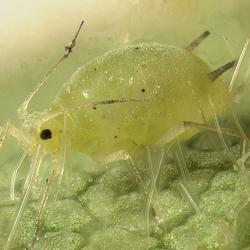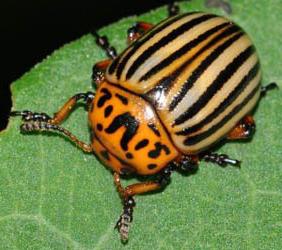Ah, summer ... The time of vacations, resorts, carefree life, as well as the ripening of the long-awaited harvest on the site, which is waiting not only for any gardener, but also garden pests! But what to do? What are the ways to deal with these gibberish insects? We will talk about this in our article.
Garden pest control
Of course, the most effective and proven means in the fight against garden parasites are chemicals. But such funds have a significant minus. The fact is that not only garden pests die from them (photos 1, 2, 3), but also beneficial insects - plant pollinators (bumblebees, bees, bugs, flower flies), birds. In addition, insecticides have a negative effect on both the person and the plant itself!
That is why among gardeners there is a constant search for effective and, most importantly, harmless to humans and plants methods of controlling pests of vegetables, fruits and berries. To date, one of the most effective and safe means from which garden pests die, are plant poisons. Their advantage over other means is that they disappear rather quickly or decompose into elements. That is why they are safe for people, warm-blooded animals and the plants themselves. Preparing these products will not be difficult if you have at hand plants and crops such as dill, potatoes, garlic, hot peppers, onions, mustard, beans, shag, tobacco, pine needles, burdock, bird cherry.

If you still adhere to chemistry, then you have a direct road to the store for insecticides (for example, karbofos, Agravertin, Aktara, Fitoverim and others). For example, if garden pests such as slugs bother you, then you can spray the soil with a solution of metaldehyde, as well as pollinate it with ash and lime. Sucking pests, such as aphids, bedbugs, scale insects, and honeydews, must be controlled by treating the flower crops on which they settle with a karbofos solution (0.2%) with the combined use of the Aktara and Agravertin insecticides.
No less common garden pests are the Colorado potato beetle and caterpillars. Our potatoes and tomatoes suffer from them. Here's how to deal with them? Is it really to spray potato tops or tomato leaves with all sorts of muck? Think it over, friends! Use the safe folk method - hot pepper! All you need to do is plant this plant next to the crop that you want to protect from the invasion of parasites. If tomatoes and potatoes respond well to hot peppers, then dill and onions are more suitable for cucumbers. Just do not plant pepper next to them, otherwise the taste of cucumbers will be bitter. By the way, potatoes are a very capricious culture, so if pepper still does not give results, then it's time to use a poisonous insecticide called Previkur.

However, in the pursuit of efficiency, do not forget that you destroy such useful creatures as frogs, hedgehogs, shrews, toads and bats, which could be a complete alternative to your chemistry! For example, bats can destroy up to 30 parasitic beetles in one evening, and ladybugs and dragonflies mercilessly eat aphids.